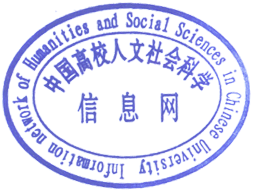关 键 词 :春秋 正义 义 礼 利学科分类:法学--法律史学
中国本土的“义”和“正义”的概念和相关正义观念对中国和东亚各国的影响十分深远,自近代以降,来自西方法律传统的Justice概念经历了在中华法系诸国中的不同译名选择,最终确定“正义”这个译名,与中国本土的“义”与“正义”概念实现了互译融通。在“义者,宜也”或“应得”“应当”这个认识上,东方法律文明和西方法律文明具有高度共识,构成一种共识性的一般正义认识。但中国本土正义观念的一大特色,是自春秋时代开始,经历代《春秋》经学体系的完善,逐渐建立起来的一整套中华文明自有的正义观念。从春秋时人的实践和认知看,这套正义观以“礼”“义”“利”为核心概念,绍述周代礼治秩序“讲礼于等”的治理传统,并以守礼与否作为“义”的主要判断标准,是为“礼以行义”。但当“礼”因各种原因不行、难行于世时,治国的“君子”们又根据实际情况,在以“义(宜)”为原则的指导下,首先完成“建利”“生利”的利益分配目标,俾使治下人民衣食丰足,并根据实践需要对既有“礼”的规范进行损益,以不断创制和更革的新礼对民众进行“教化”,以求实现“得众”“同心同德”的治理目的,是为“义以出礼”。春秋时人以“礼”“义”“利”互动为路径,以最终形成了春秋时代的正义观。因儒家学术的影响,此种正义观念遂以《春秋》经术的形式,深刻影响到后世中国的正义观念和法律实践。
The concepts of "Yi " and " ZhengYi " in China and the related conceptions of justice have a profound impact on China and East Asian countries. Since modern times, the concept of “justice” from Western legal traditions has varied different translations in countries of the Chinese legal system. Finally, the translation of “ZhengYi” has been determined, and the western legal concepts of "Justice" and the Chinese legal concept “ZhengYi” had been translated into a pair of blended concepts. In the understanding of “Yizhe, Yiye” and “to render every one his due”, Eastern and Western legal civilizations have a high consensus on the concept of Justice and Yi (or ZhengYi), which formed a general consciousness of justice. However, as a major feature, the Chinese conception of justice, which has been gradually established since the Spring and Autumn Period, and through the improvement of the Confucian classics Chunqiu (Annals of Spring and Autumn Period) academic system. From the perspective of contemporary people's practice and cognition in the Spring and Autumn Period, this conception of justice takes “Li (rites)”, “Yi (righteousness)” and “Li (benefits)” as the core concepts, inherited the governance tradition of “Jiang Li Yu Deng (distinguish different rites in a hierarchy)” in the order of Li Zhi (governance by rites ) in the Zhou Dynasty, and takes the observance of Li (rites) or not as the judgment standard of ' Yi (righteousness) ', which is called “Li Yi Xing Yi (obtain justice through the practice of rites)”. However, when "Li (rites) "is not feasible for various reasons, the "Junzi (gentleman, or nobles) " who governs the country, will first complete the goal of benefit distribution of " Jianli (benefits distribution) " and " Shengli (generating benefits)", according to the actual situation, and under the guidance of the principle of " Yi (righteousness) ". Then to make sure the people under their rule got the freedom from want, and according to the practical needs, made some further adjustments to the Li (rites)'s rules and norms, and finally " Jiaohua (enlighten) " the people with new Li(rites) that are constantly created and reformed, in order to achieve the governance purpose of " Dezhong (obtaining the public) " and " Tong Xin Tong De (united together by consistent interest)". In the Spring and Autumn Periods, the practical path developed between the interaction of “Li (rites)” and “Yi (righteousness)”, generated the conception of justice of that period. Due to the influence of Confucianism, this conception of justice has a profound impact on the legal practice in later China.

